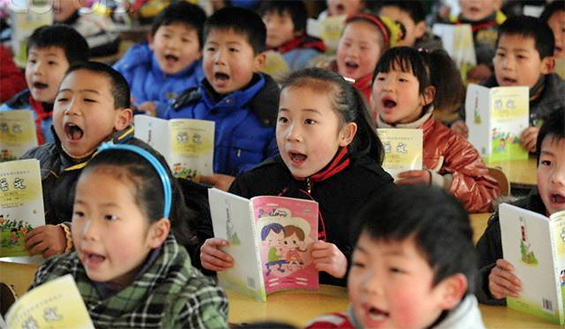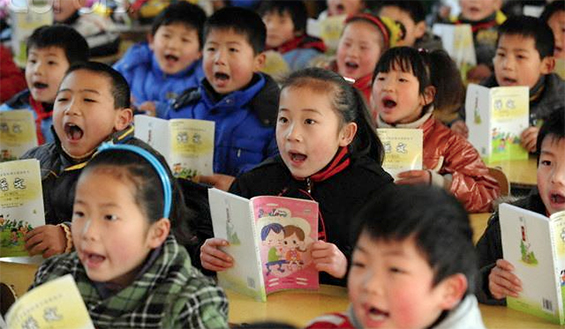
The Chinese Communist Party has issued a directive to encourage patriotic education at all school levels through textbooks, examinations, art, sports, and museum visits.
The document requires that university and college students need to be given further instruction to “always follow the party.” Following the directive, the Chinese Ministry of Education began a nationwide campaign to overhaul ideological education and instill it into extracurricular activities covering student’s online and offline lives. Teachers will also use innovative media channels such as Weibo and WeChat to promote in-depth patriotic education.
Schools will also instill patriotism into primary schools, secondary schools and universities by launching courses on ethics, Chinese language and culture, history, geography, physical education and the arts. Restoring respect for the ancient Chinese traditions promoting party’s authoritarian views is another important aspect of the directive, and to achieve it educators are strongly encouraged to focus on classical texts and virtues.
The new directive strictly follows a government plan released last year urging China to become “a world power of higher education” by 2050, notes Mimi Lau of the South China Morning Post. At the beginning of 2015, universities were instructed to increase the teaching of Chinese socialism and Marxism. The Minister of Education also called for stricter control over the international textbooks “that spread Western values.”
Experts have doubted whether China would create world class universities by implementing “ideological guidance” into the curriculum.
The new directive goes beyond students in mainland China. It explicitly says that Chinese students abroad should also be educated in patriotic values, writes Chris Buckley of The New York Times. The document calls for creating a multidimensional contact network between the motherland and abroad – the home country, embassies, Chinese students groups — so that the students know China cares about them:
“Guide youthful students to establish and maintain correct views of history, the nation, state and culture. Constantly enhance their sense of belonging to the Chinese nation.”
According to the Chinese Ministry of Education, by the end of 2014 there were 1.7 million Chinese students enrolled in universities abroad, mostly in Australia, Canada, and the United States. The Institute of International Education confirmed that over 300,000 students were studying in US universities in 2014-2015 academic year.
Chinese students in Chinese universities often lack critical thinking skills, and their culture gets the blame, writes David Matthews of Times Higher Education. Matthews quoted research by Tao Zhang, a lecturer at Nottingham Trent University, who interviewed 16 peer Chinese students majored in Journalism and Media. They confirmed that back in China they were required to study Marxism and Mao Zedong Thought next to their major field of study. However, they said they just wanted to pass the exams rather than focus deeply on state propaganda.
Asked about their opinion on critical thinking, they said it was something completely new to them. They did not have to present any evidence or references to support their views back in China. Furthermore, they did not know how to be critical when in China, or what to be critical of. In conclusion, they said they were now aware of alternative thinking.




